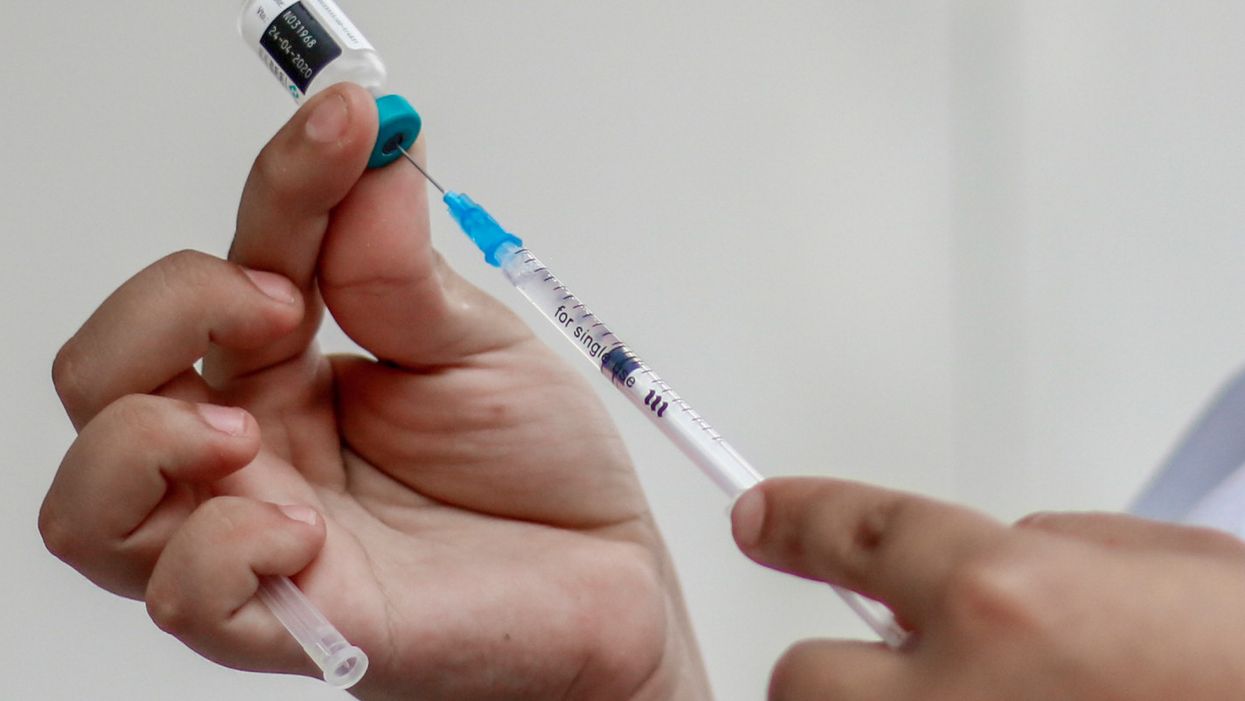
Schneyder Mendoza/AFP/Getty Images

Health officials say mostly unvaccinated children are infected with the highly contagious virus
Orthodox Jewish communities in New York state have been hit by one of the worst measles outbreaks in about 20 years, according to health officials.
Since October, 55 cases of measles have been confirmed in Brooklyn, 105 in Rockland County, and seven in Orange County, the New York Post reported. As of Tuesday, four additional suspected cases in Rockland County were pending test results.
Most of the cases have occurred among Orthodox Jews not vaccinated or under-vaccinated. New York City Health Department officials told Vox that anti-vaccine propagandists have spread misinformation among the tight-knit community.
The Brooklyn outbreak was sparked by a child who became infected during a trip to Israel, where there has been a major epidemic of measles cases.
"Since then, there have been additional children from Brooklyn who were unvaccinated and acquired measles while in Israel," the Health Department said in a release. "Children who did not travel were also infected in Brooklyn or Rockland County."
About 80 percent of the cases have occurred in children under 18.
Brooklyn Orthodox Rabbi William Handler is among those in the community who still profess the debunked claim that autism is linked to the measles-mumps-rubella vaccine.
Parents who "placate the gods of vaccination" are engaging in "child sacrifice," Handler told Vox.
Alexander Rapaport, the CEO of the Masbia Soup Kitchen Network in Brooklyn, said that public health awareness often doesn't make it to the Orthodox Jewish community.
"We see government invest in public health awareness a lot," Rapaport said. "But it never trickles down to Yiddish speakers or people who don't own TV sets."
State Health Department spokesman Jonah Bruno told the Post that anyone who hasn't received an MMR vaccine should get one as soon as possible.
Officials have also advised parents to get their children vaccinated earlier than the recommended schedule since the spike in cases.
The first dose is usually given at 1 year old and a second dose at 4 years old.
"We changed it to get their first shot at 6 months old," Rockland County spokesman John Lyon told the Post. "The second shot you can get 28 days after the first shot. We've been recommending that people do it immediately."
Lyon said that children who receive the MMR vaccine on the expedited schedule would still need another at the age of 4.
Measles is considered one of the most contagious viruses. It is spread through infected droplets that are sprayed into the air when an infected person talks, sneezes or coughs.
It can also be contracted when people touch an infected surface and then rub their eyes or nose or put their fingers in their mouth, according to Mayo Clinic. The virus remains live and contagious on a surface for up to two hours.
Early symptoms include fever, cough, runny nose, and red, watery eyes and usually appear between 10 to 12 days after exposure. Three to five days later a rash of red spots begins to appear on the face and spread over the entire body.
The virus is most severe in infants, pregnant women, and those with suppressed immune systems. The disease can be fatal for small children.
As of Dec. 1, 292 confirmed cases of measles have been reported across 26 states and the District of Columbia, according to the Centers for Disease Control and Prevention.